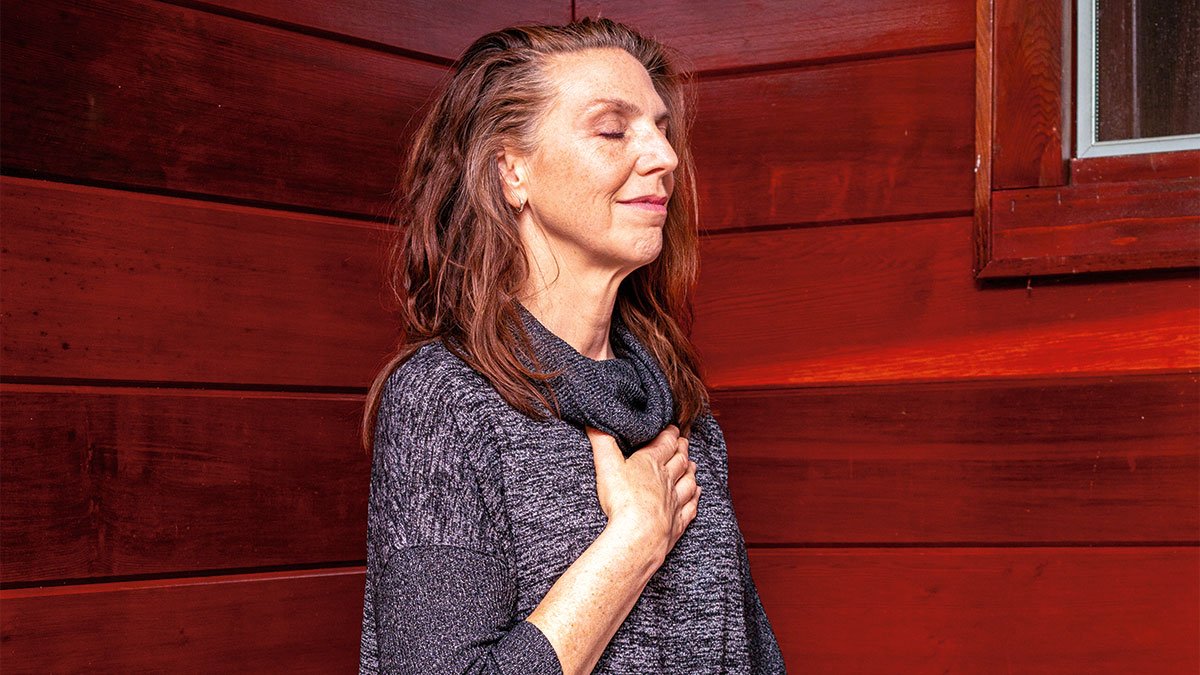The first time I tried to meditate, I didn’t like it. It was long, it was difficult. And worst of all, I wasn’t good at it. I was a college student who was attending a meditation lecture and practice session. During the practice, I could not experience anything but my default chain of thoughts. I didn’t try meditation for a few years after that, but I did take up yoga classes and started meditating. Gradually, I got used to it and I attended workshops and retreats, and with time and practice, I noticed that I was less self-critical, not just during meditation, but in general, and I’ve also noticed many other benefits, including being able to experience more joy in everyday moments.
For the past few years, I have been teaching meditation to university students, and when my students describe their challenges, I recall the self-critical atmosphere of their first attempts. I have come to think that self-criticism is an important obstacle to highlight for both beginners and advanced students. Meditation teachers often combine self-criticism with the issue of judgment. They argue that meditation reduces automatic judgments by bringing awareness to the present moment, cultivates the beginner’s mind, and Leave your preconceived ideas and opinions behind. Because non-judgmental awareness naturally embraces itself, over time, meditation typically reduces self-criticism. Studies on the mental health benefits of meditation cite reducing judgment as the main reason why meditation improves symptoms strongly associated with self-criticism, such as depression, anxiety, and stress.
“Whenever your concentration gets lost, try bringing your attention back to your breathing as gently as possible.”
While self-criticism can be seen as just another form of judgement, just another thought, it is worth examining it in its own right. It’s great that meditation practice reduces self-criticism over time, but many people don’t stick around to see that. Carrying the pain of self-criticism in the form of “I’m bad at meditating” can bring on an avalanche of excruciatingly painful thoughts, memories, and emotions that people want to avoid or run away from. So, address the self-criticism first.
Several mental habits make us susceptible to self-criticism. First, it’s easy to stop trying things that seem difficult and adopt a mindset of “I’m good at X, so I do it, but I’m not good at Y, so I don’t do it.” Second, meditation is often mistakenly thought of as a state of total focus — a state of calm and serenity. If we’re not having that ideal experience, we tend to assume that there’s something wrong with us. Third, self-criticism is often seen as a personality trait (“I’m my own worst critic”) rather than a conditioned mental habit that can be changed. The habit of self-criticism manifests itself during meditation, often in the form of constantly criticizing one’s practice.
In my experience, the biggest obstacle to meditation for beginners is self-judgment. I tell my students that they need to make an effort not to judge themselves. It’s hard not to judge where your mind goes and how many times you have to return to the breath. You will almost certainly lose focus a thousand times. These distractions, although frustrating, are normal. need It’s meant to improve attention (research shows that both redirecting and sustaining attention contribute to mental health). The repetition of returning your attention to your breath as non-judgmentally as possible improves focus and reduces self-criticism, which is a difficult mental habit to change, even in meditation. But reducing self-criticism is strongly associated with better mental health.
Self-criticism can be overtly or subtly lurking in what Buddhism calls the five obstacles: lust, hatred, laziness and lethargy, restlessness, worry, and doubt. For example, self-criticism is a form of hatred. Self-hatred can be expressed when we blame ourselves for not practicing well. Self-criticism about meditation (“I’m bad at meditating”) can also hide worry, restlessness, impatience, conflict with the effort of our practice, and doubts about the usefulness of meditation itself.
In Buddhism, the five obstacles are of Self-criticism in meditation is a common obstacle to meditation. However, because it is not often featured in teachings about the obstacles, practitioners often see self-criticism as a personal affliction. Practitioners may over-identify with self-criticism or deny its existence in the context of a practice that emphasizes non-self, reduces judgment, and suppresses the ego.
I once heard someone ask Thich Nhat Hanh, “How can I love myself?” I thought his answer would be to treat my thoughts in a different way. Instead, his answer was, Speak gently to your body sensations. He explained how, as you sit to meditate, you should greet your body with kindness and love: “I have a body. Hello, body.” He then explained how to observe your body sensations, including your breath, with deep attention. He also showed how to speak to your body with kindness, patience, and respect. He then modeled: How can cultivating a compassionate relationship with your body spill over into your thoughts and other experiences?
Inspired by Thich Nhat Hanh, I challenge my students: “When your concentration is lost, why not try and bring your attention back as gently as possible to your breath? Is it necessary to stay focused on the goal rather than remaining focused on the goal? I invite my students to lovingly observe physical discomfort, boredom, and even intrusive thoughts and memories. The practice is to maintain a “kind witness” perspective rather than immerse yourself in the thought or feeling and then immediately return your attention to it. on the breath or other focus points.
Self-criticism in meditation is not just an issue for beginners. For experienced meditators who know not to criticize meditation or make it an ego project, self-criticism can be hard to spot. Self-criticism can appear as a sense of trying, perhaps disguised as wise effort. Most of us want to be aware of how our practice is unfolding and what adjustments might help. But such awareness can lead to blaming ourselves (perhaps very subtly) when our practice is not unfolding the way we would like it to. For experienced meditators, self-criticism can drift into the background, making it harder to spot.
Sometimes I criticize myself about my meditation practice, especially about consistency and attention. I even criticize myself for criticizing myself about meditation. But I continue to cultivate kindness toward criticism. As I practice, I try to increase my attention to my breath and other present-moment sensations. Criticism is there, but not center stage. As I work with students who are new to meditation, their self-criticism is often shouted rather than whispered, and I realize I am not alone. Teaching has refined my view that self-criticism is a common obstacle that can be tempered by friendliness, non-identification, and practice.


